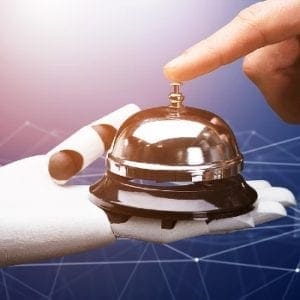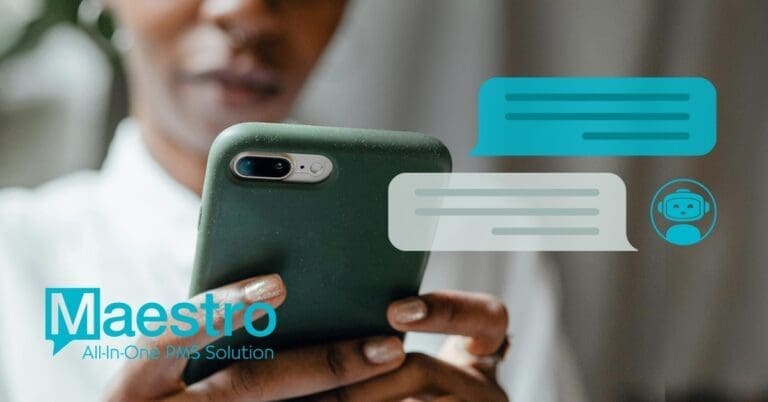 Artificial Intelligence (AI) is the future of tomorrow’s world and already its immense impact on human life has moved from factory floors to service institutions and the home. AI enhances the human capacity to perform certain tasks faster, more accurately, and at a higher rate than would have been possible previously.
Artificial Intelligence (AI) is the future of tomorrow’s world and already its immense impact on human life has moved from factory floors to service institutions and the home. AI enhances the human capacity to perform certain tasks faster, more accurately, and at a higher rate than would have been possible previously.
The pandemic that has put the world under lockdown has adversely affected the hospitality industry with hotels suddenly without guests. Similarly, travel restrictions have affected tourism and the future looks bleak unless the sector explores AI for tourism’s sustainable recovery. So, how can AI help improve hotel customer experience?
Personalized service
AI personalization involves synthesizing diverse customer data sets to extract vital insights and using these to provide better customer experience. By using AI in CRMs, hotels can understand their customers’ preferences and can then leverage these privileged insights to target both marketing efforts and service delivery for business growth and improved customer experience.
AI chatbots, while useful in collecting data, can go a step further and conduct a customizable conversation that addresses the individual needs of every visitor in a more helpful way than the traditional website fill-in forms.
Customers want a fast response to their queries, especially online and can abandon their effort if they fail to get assistance promptly. Where human intervention is not immediately available, AI chatbots can help provide the needed support to staff by managing multiple customer needs simultaneously and seamlessly.
Through AI’s Natural Language Processing and sentiment analytics, hotels can package their content for specific customer audiences based on feedback data collected. Lucy, a mobile app that assists guests with check-in, order room service, change temperature settings, and practically enjoy self-service, is an example of how AI improves customer experience.
Reduce booking friction
Most people prefer direct booking to agencies as it cuts down the overall cost and puts them in control of their travel plans. To maximize on this customer channel, hotels need to make the direct booking experience as cordial as possible for the guest.
Any difficulties or lack of attention at this stage creates a negative feeling in the guest and increases the chances of dropping contact altogether. Problems that cause booking friction include slow websites, non-provision of call options, and lack of ready solutions to possible difficulties.
A technology research writer for a popular essay help portal says that deploying AI-based solutions to assist guests in direct booking online is a smart way to improve customer experience. The millennials who form a significant percentage of travelers are reluctant to engage hotel staff for information and prefer instead to use digital service on social media platforms and hotel websites according to surveys.
It is now possible to serve this category of customers easily using hotel chatbots that can provide service, handle bookings, and reservations while collecting valuable data for later use by the hotel.
AI-powered concierge service
Concierge service has been integral to the hotel industry over the years, helping customers feel comfortable during their stay.
The concierge service helps guests make dining reservations, arrange transportation, recommend places of interest, reserve spa services, and coordinate porter service among the many needs a customer may have. A concierge becomes the face of the hotel or, better still, the host upon whom the guest depends on for a good experience.
So far, this has worked well in the past with the concierge staff able to manage the fewer number of guests staying at a hotel. However, it is currently proving difficult to keep pace with the emerging sophisticated and demanding guest.
To get around this, hotels are looking to AI-powered concierge service to provide better customer experience for guests. Hilton Worldwide Hotel has already deployed this solution with the use of Connie for concierge service. Connie is a robotic concierge that provides efficient and fun customer care at the front desk that endears guests to the hotel.
Voice-Activated devices in rooms
Ordering for room service without raising your head from the pillow to pick a phone can be a joy to a hotel guest. Whereas the robotic concierge welcomes you at the front desk and lights up your check-in, “her” services do not extend to the room.
Now hotels are moving to provide personal room assistants that enhance the customer experience for the guest by replacing the archaic phone with smart interactive voice-activated devices.
Simply speak to Roxy, the latest AI-enabled voice assistant and “she” will respond to your questions and make your orders! Roxy is a fully customizable device that can be aligned to hotel services to enhance the guests’ comfort. The hotel adds custom commands to the device to make it easy for guests to access all services conversationally.
Rate optimization
Hotel business runs on seasons and events to drive occupancy and dictate pricing. Hotel executives have to stay alive to these factors if they hope to sustain occupancy levels. To achieve this, they need real-time market intelligence and especially behavioral traits of their target customers.
With correct customer insights, hotel marketers can create attractive packages that appeal to the needs of the customers. If you operate a ski resort, figure out innovative ways by which you can attract customers in summer. This could include offering alternative attractions other than snow and lower pricing.
AI provides predictive analytics that can help you leverage market trends to sustain RevPAR levels at customer-friendly prices. Properly deployed, predictive analytics can produce data on expected tourist numbers to your area, regular business travelers, and events across the seasons in a year to help you plan.
Using the Duetto app, an AI software solution, you can work out appropriate pricing to sustain your customer flow and bed occupancy at reasonable margins.
Conclusion
Artificial intelligence has one unique characteristic; it can be personalized. Personalized service is pivotal in the hospitality industry and it is what drives customer experience. Hotels rely on this to grow their customer base and revenue and embrace any method, including technology, that will enhance their chances of achieving these goals and AI comes in handy.






























